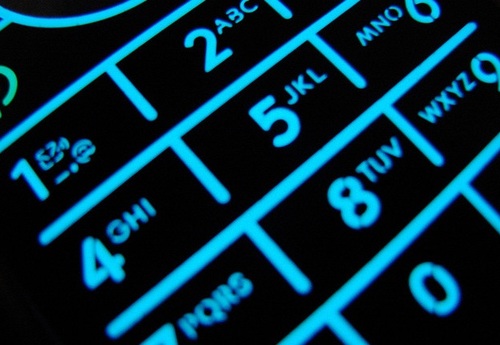Phone Codes
 The phone codes 2153, 4387, and 7738 each give the same remainder when divided by a fourth four-digit code. What is the fourth phone code?
The phone codes 2153, 4387, and 7738 each give the same remainder when divided by a fourth four-digit code. What is the fourth phone code?
The answer is 1117.
This section requires Javascript.
You are seeing this because something didn't load right. We suggest you, (a) try
refreshing the page, (b) enabling javascript if it is disabled on your browser and,
finally, (c)
loading the
non-javascript version of this page
. We're sorry about the hassle.
6 solutions
Looks like a very neat solution, but could you please explain why? I didn't study modular arithmetic, sorry if it is something obvious but I want to read more about what you can hint me to.
Thats what my solution going to do, THANKS FOR SOLUTIONS!!!
let n be the answer (7738-4387) - (4387-2153) = n , 3351 - 2235 = n , 1117=n
rewrite: 7738-4387=ab & 4387-2153=ac solve integer a=1117 therefore fourth number is 1117
All give a remainder of 1036 when divided by 1117.
By Euclid's division algorithm, we know that a= bq+r, where a,b are positive integers and q,r are whole numbers and r=0 or is less than q
Thus,
2153= bq+r (1)
4387= cq+r (2)
7738=dq+r (3)
(2)-(1)= 2234=q(c-b)
Thus, q=(2234)/(c-b)
We observe that for 2234 to be a natural 4 digit number c-b=2 or 1
Clearly 1 is not possible, since q is less than or equal to 2153
Thus, q= 2234/2=1117 ans.
Moderator note:
I disagree with "Clearly 1 is not possible, since that would imply c=b". All that would imply is c − b = 1 .
FYI To start on the next line, leave 3 empty spaces at the end of your solution. I've edited it for your reference.
Sorry sir, I don't know what I was thinking! I have hence edited the answer.
Log in to reply
Thanks.
Note that you have only shown that 1117 is a potential answer. You have not shown that it is indeed a valid answer. E.g. how do you know that there isn't some consideration which makes us have to reject 1117 as the answer, similar to what we did with 2153?
Log in to reply
Sir, we know that there is a definite answer and with 2 possibilities- one of which is logically reasoned out, won't the remaining one be the answer? I realize the fact that I have not deployed mathematical means to prove that 1117 is the answer but is logical deduction incorrect here?
Log in to reply
@Aditya Dhawan – So you're using the assumption that "Problems on Brilliant always has a correct answer", which isn't necessarily true (there are people who post problems with no correct answers) and hence shouldn't be a huge part of your solution. Furthermore, reliance assumptions like this will hamper your learning in the future, where they may or may not be answers.
For your own good, I strongly encourage you to establish that you indeed have found the correct value that satisfies the conditions of the problem.

The greatest number which can divide x , y , and z and leave the same remainder in each can be given as the greatest common factor of ∣ x − y ∣ , ∣ y − z ∣ , and ∣ z − x ∣ . so the number in this case would be greatest common factor of ( 4 3 8 7 − 2 1 5 3 ) , ( 7 7 3 8 − 4 3 8 7 ) , and ( 7 7 3 8 − 2 1 5 3 ) , which is the greatest common factor of 2234, 3351, and 5585. This greatest common factor is 1117.